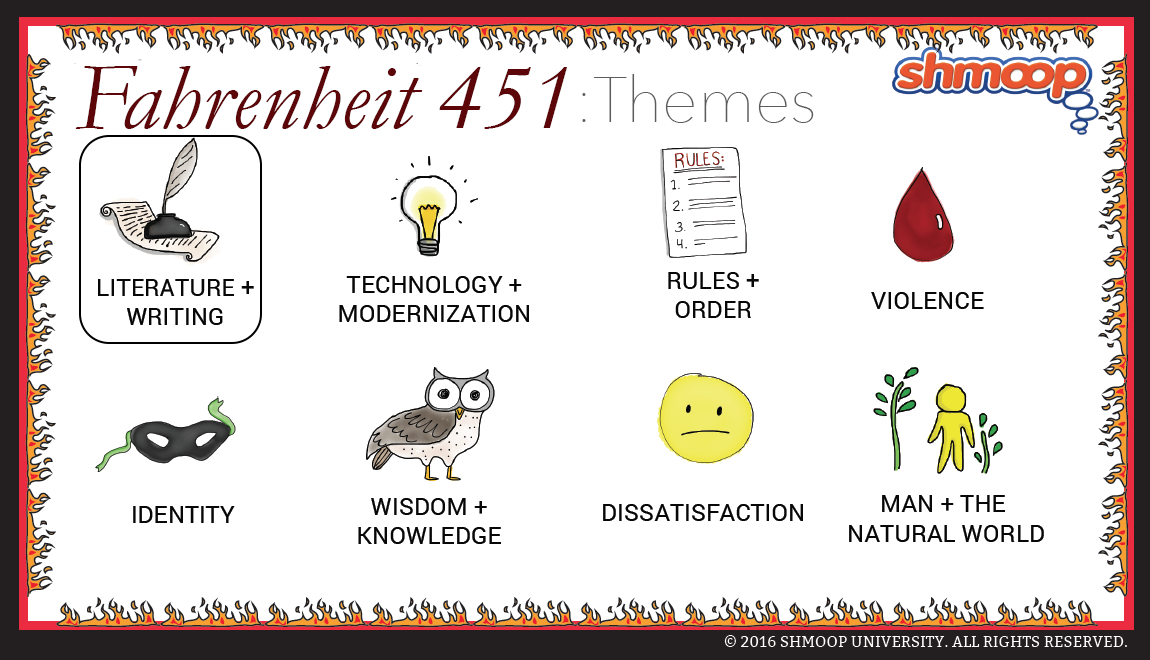 (Click the themes infographic to download.)
(Click the themes infographic to download.)
You can bet a pretty penny that nobody in Fahrenheit 451 has read Fifty Shades of Grey. Or Twilight. Or Why Cats Paint. That’s because in this world, books are banned.
Not only are they banned—if you’re caught with any books in your possession, the fire department will come and set house on fire, because that’s not an overreaction or anything.
Even though we don’t see too many of them, books are a huge deal in this story—it’s full of debates on the advantages and disadvantages of literature. The novel's characters present a variety of points of view.
One believes that books are problematic in how they present so many varying and often contradictory viewpoints. This leaves the reader confused. Another believes that books themselves are not important, rather what matters is the information that the best of them contain: reflections of life and the world at large. A third character insists that those who study literature stay off the metaphorical pedestal—they are merely receptacles for the knowledge they carry. Either way, the novel reminds us that without literature, we’d be stuck between a rock and a hard, bookless place.
Questions About Literature and Writing
- At the end of the novel, Granger tells Montag that they all need to remember not to feel superior; that it is the books, not the people who read them, which are important. Earlier in the novel, Faber claimed that books themselves didn’t matter, only the way that life was reflected in them. Are these contradictory or complementary statements?
- If books and TV both have the capacity to convey information at a mass scale, then why are books so superior to television in this novel?
- Why does Mrs. Bowles start crying when Montag reads Dover Beach? Why does Montag choose to read poetry and not prose? And why that particular poem? What is Dover Beach about, anyway?
- What do you make of those lines about the eggs from Gulliver’s Travels? What does that have to do with anything that’s going on in Fahrenheit 451?
Chew on This
In Fahrenheit 451, the content of books does not matter; the process of reading and thinking does.